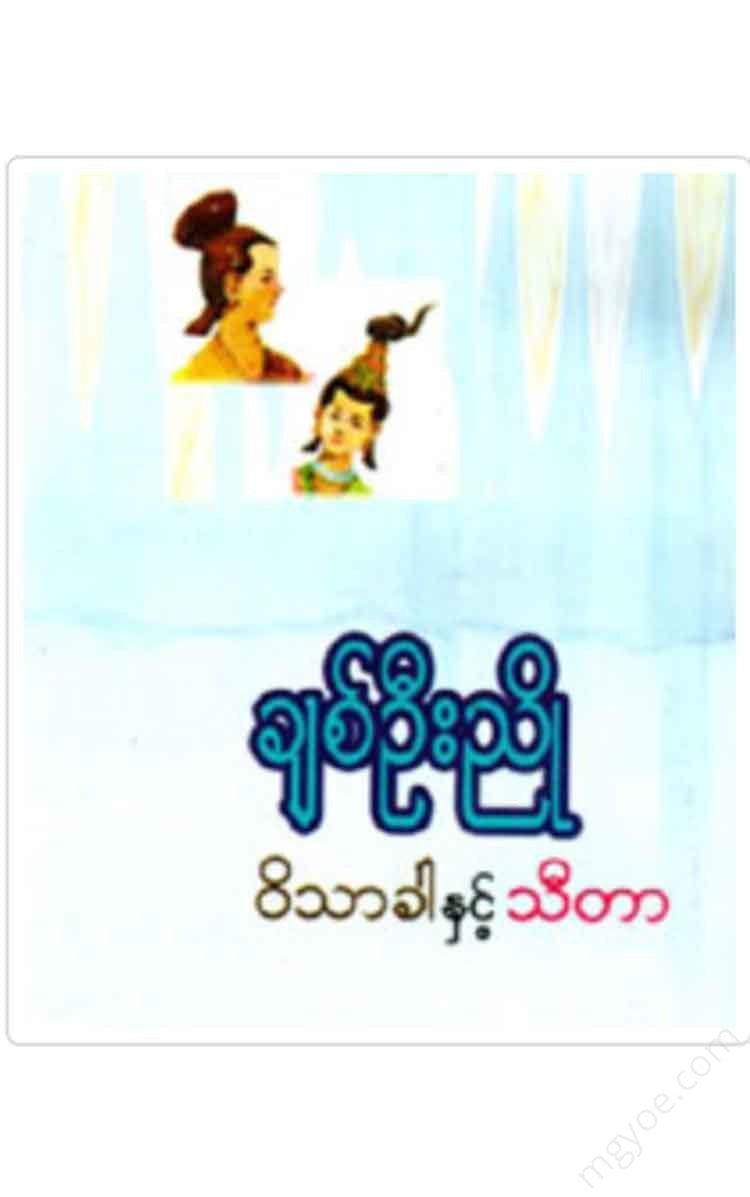Other Websites
Chit Oo Nyo - Visakha and Thida
Chit Oo Nyo - Visakha and Thida
Couldn't load pickup availability
(1)
"Music...even God doesn't reject songs...
"The beautiful white robe of the Pupvara Monastery... He plays the bhajan with his own hands, and is happy, and never dies, this worldly body... He is extremely generous... The arahants pray and offer offerings... The great teacher of the monastery, even the Buddha does not blame him..."
I like the city and the singer, so this song stuck to our lips easily. Among the songs that a group of friends sang and sang as they rode their bicycles along the eastern moat in front of the palace in the dark night, this "Panthathika" is an indispensable part.
"The five gods... the five gods... the sound of the music" was the "stealing" verse, and everyone shouted. I thought that the old lady of the school was playing with us, playing with a gong. A friend asked thoughtfully. "It must be very painful to play with a gong." One of them thought and said. "A school girl playing with a gong is a bit... well... she lacks self-control. Another said, "There is a line about a person who is very generous. She must be very happy." The little girl who thinks about everything,
He asked, “Did the Buddha’s time have a Buddha?” No one answered his question.
No one has ever explored the words “Pubvara Monastery” in the song. Later, in the sermons of the monks and the words of the elders, we hear the name “Visakha, the head of the monastery”. Then we come to know that Visakha is the head of the monastery of Pubvara. However, it is true that Visakha did not attract our attention as much as Vitthuthu. The story of Prince Vitthuthu is full of swords and spears. He washed the place where he sat with cow’s milk and said, “Htu... my son,” and washed it with the blood of the Sakyan kings. Then he and his army drowned in the Asiravatty River. Visakha was a simpleton. The daughter of a rich man, in due time, she married a rich man. Then he built a great monastery, donated to the Buddha, Well... I think it's a bit unusual to be a Sotapan since she was 7 years old. But that's not as exciting as Witthut, who became a commander-in-chief at the age of sixteen.
(2)
Later, I came across something that raised eyebrows about Visakha. It was the name “Migaramata.” How did they get that name? Migara was the name of the rich man’s father-in-law. The rich man’s father-in-law was his daughter-in-law, his son’s daughter-in-law. She confessed to that daughter, "You are my mother," right in the presence of the Buddha. Therefore, Migara Mata, the mother of the wealthy Migara... I understood that it was very rare for a mother-in-law to call her mother. Why? When I thought about it, I realized that son-in-law and mother-in-law, daughter-in-law and mother-in-law, are a "unit" that must be so tightly intertwined that they can be said to be inseparable. Isn't the war between Sindhu and Ahura the highest example of the conflict between son-in-law and mother-in-law? In such a nature, it must have been a very great reason for Migara to even call his daughter-in-law Visakha mother.
Therefore, forgetting the great waves of the Asiravathi River, he turned his attention to Migaramata.
We opened the pages of Visakha's life as planned.
The influence of grandfathers and fathers
In the kingdom of Rajagra, where King Bimbisara's power spread, there was a city called Baddiya. In that city lived the rich Menaka and the rich Sandapaduma. Their son was Dhaninsayah. Dhaninsayah's wife was Sumanadevi. Visakha...

